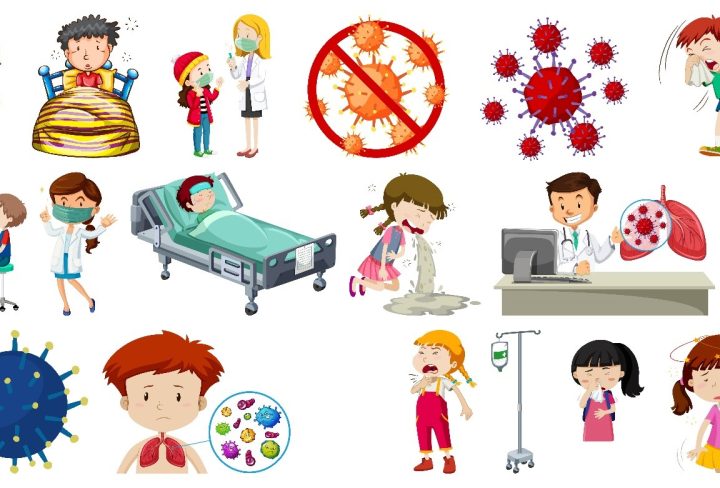Introduction:
Children are naturally curious and explorative beings, making them susceptible to various viruses and bacteria. As their immune systems continue to develop and adapt, they often experience multiple infections throughout their early years. In this blog, we will explore the reasons behind repeated infections in children and provide essential tips for prevention.
Repeated Infections in Children: Why Do They Happen?
Babies with immature immune systems gradually strengthen with time and exposure to various antigens. During their first few years of life, children may experience 4 to 8 infections annually, including common colds, ear infections, and gastrointestinal upsets. Every child’s immune response differs, and the frequency of infections generally decreases with age.
When Should I Be Concerned About My Child’s Frequent Infections?
While repeated infections are common, some warning signs may indicate an underlying issue, such as an immunodeficiency disorder. If your child experiences any of the following, it’s essential to consult a healthcare professional:
- Requiring more than four courses of antibiotics in a year.
- Experiencing more than four new ear infections in one year after the age of 4.
- Developing pneumonia twice or more at any time.
- Having more than three episodes of bacterial sinusitis in one year or experiencing chronic sinusitis.
- Needing preventive antibiotics to reduce the frequency of infections.
- Developing unusually severe infections that originated from common bacterial or viral infections.
Preventing Repeated Infections: Tips for Parents
a. Nutritious Diet and Adequate Sleep:
A balanced and nutritious diet plays a crucial role in bolstering your child’s immune system. Incorporate a variety of fruits, vegetables, whole grains, lean proteins, and healthy fats into their meals. Additionally, ensure they stay hydrated throughout the day. Sufficient sleep is equally important, as it allows the body to repair and rejuvenate, ultimately supporting a stronger immune system.
b. Vaccination:
Vaccinating your child against common childhood diseases is one of the most effective ways to protect them from infections. Follow the recommended vaccination schedule provided by your healthcare provider. Vaccinations safeguard your child and contribute to community immunity, preventing the spread of contagious diseases.
c. Hygiene and Cleanliness:
Maintaining a clean and hygienic environment is crucial to minimize the risk of infections. Encourage your child to wash their hands frequently, especially before meals and after using the restroom. Teach them proper coughing and sneezing etiquette, such as covering their mouth and nose with their elbow to prevent the spread of germs.
d. Regular Pediatric Check-ups:
Regular visits to the pediatrician are essential for monitoring your child’s health and identifying any potential issues early on. Your pediatrician can provide personalized advice on preventive measures based on your child’s specific needs.
Conclusion:
While repeated infections are common in children, parents can take proactive steps to protect their little ones from unnecessary illnesses. A comprehensive infection prevention strategy includes a nutritious diet, adequate sleep, vaccinations, proper hygiene, and regular pediatric check-ups. Parents can help ensure their child’s overall well-being and healthy development by following these guidelines and being vigilant for any concerning signs.

